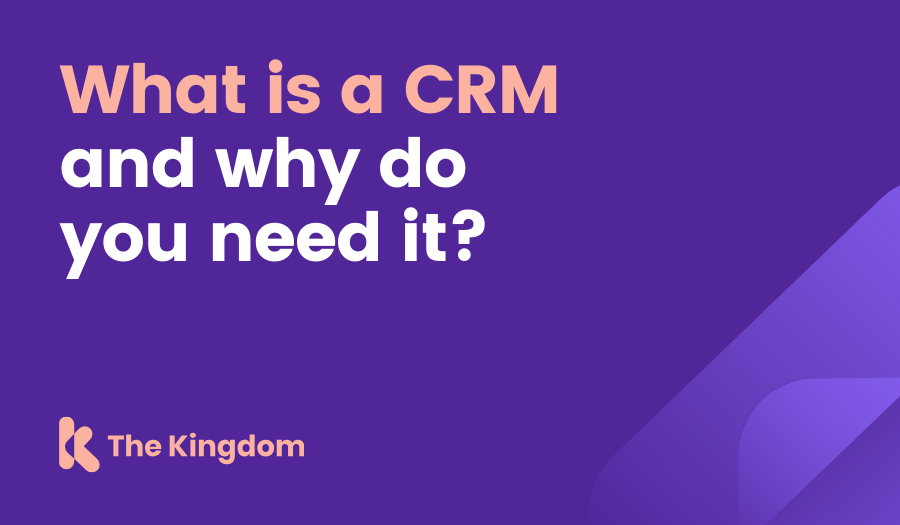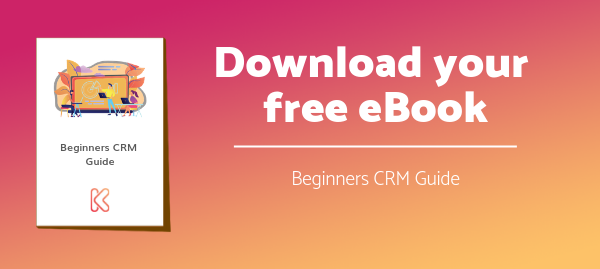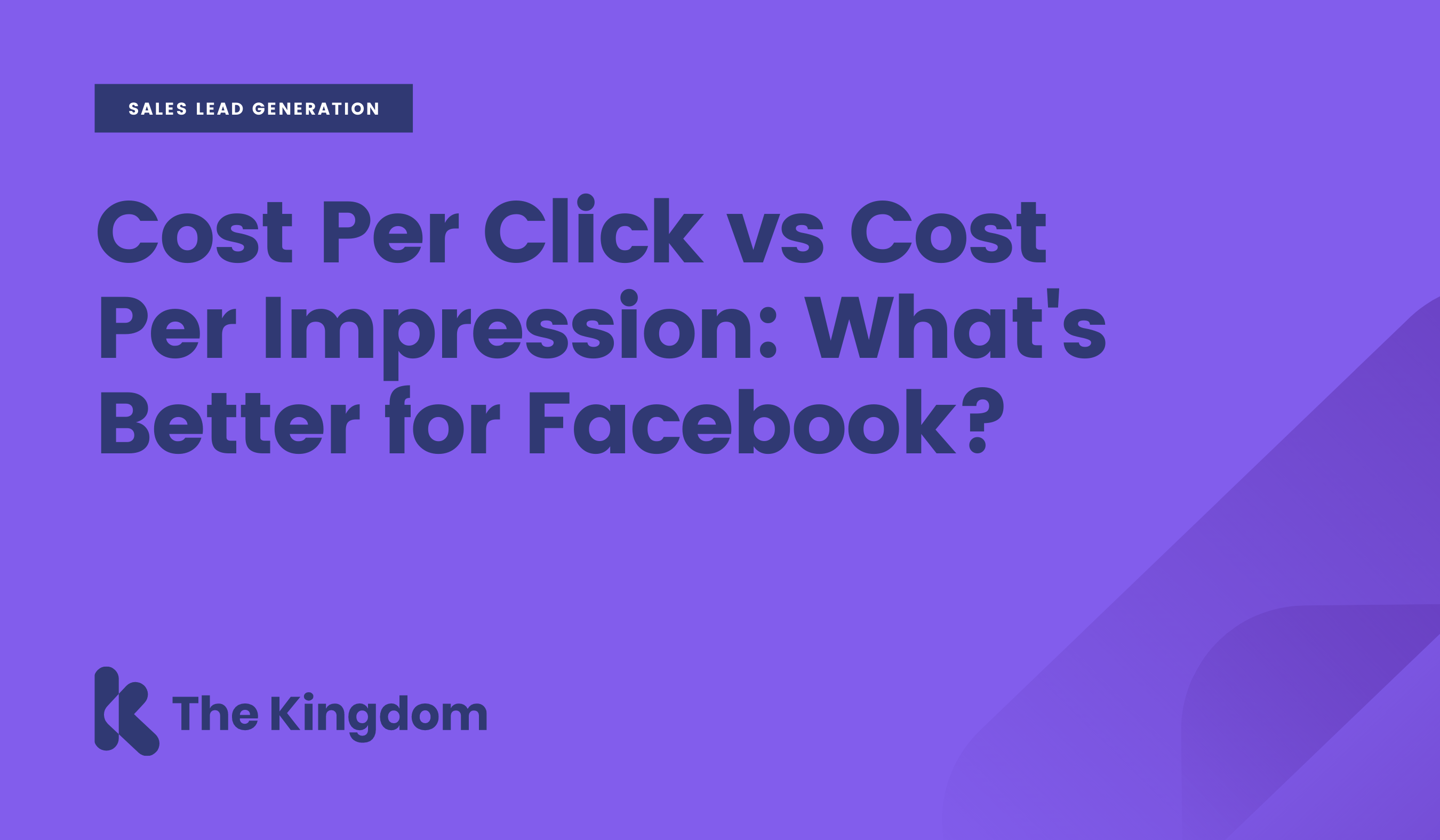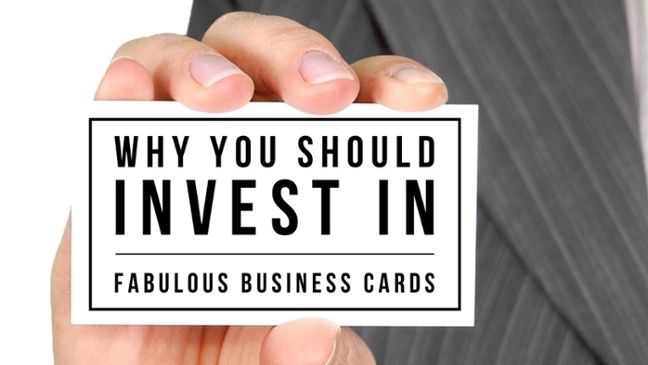The world is getting more competitive every day, so how do you keep up? Every business wants more sales, lower costs, and better quality leads, right? But how do you make that happen in a market that is tougher than ever?
The first step is getting your customers, leads, and contacts organized, and that means CRM.
What is CRM
CRM or “Customer Relationship Management” can sound intimidating, especially to small- and mid-sized businesses. Really, though, it's just a modern Rolodex.
A CRM system is a dedicated program that manages your customers, leads, and contacts. CRM systems not only have features that help manage your contact details, but also much of your sales information. CRM software brings together all this information and organizes it, so you're not relying on your calendar or mental checklist. Handing off clients to teammates gets easier, and you'll never again forget to follow up on a call. The bigger your business gets, the more you will need it.
Depending on the size of your business, implementing a CRM can take 3-6 months. Deployment takes a fair degree of change management, and training your team to use it.
So, is it worth it?
I bet that anybody reading that has put the effort into a CRM deployment would be answering, "Absolutely".
CRM streamlines and organises your contact management, so you don't have to rely on your mass of spreadsheets. If you don't have a CRM already, and you want to grow your business, it's fair to say at some point you will need one.
So why not get in early and implement a CRM now.
At its core, a CRM is not just useful to large enterprise companies—it’s essential for businesses of all sizes.
Did you know that 75% of sales managers say that using a CRM helps to drive and increase sales? It’s hard to argue with numbers like that.
How does a decent CRM give you a competitive advantage?
1. Salespeople Have More Time to Sell
Gun salespeople are vital assets, but there is always an admin component attached to what they do. A CRM gives the best salespeople more time to do what they do best—which is coalface selling. Following up, nurturing leads, and closing deals. The better organised and more automated their processes are, the more activity they can create.
A CRM is a vital tool for a salesperson to get more done, which translates directly to more sales for your business.
Consider this: Forrester Research reports that companies that shine at lead nurturing generate 50% more sales-ready leads at 33% lower cost.
2. Better Quality Leads
The goal of implementing a CRM is to create a system that your sales and marketing teams can use to interact more efficiently with prospects or customers. CRM features like lead scoring, list segmentation, and the ability to target campaigns allow your teams to work smarter.
84% of companies that have a CRM have a lead scoring process in place to determine the quality of leads. (Direct Marketing News)
This results in better sales.
3. Communicate More Easily
Marketing will often use a CRM to ensure that they’re passing the right leads to their sales team—an essential aspect of developing a strong relationship with the sales team.
CRM systems improve customer retention by 27%.
Salespeople utilise the CRM in a different way. They use it to source prospective customers, communicate with them, and track their interactions over time.
It's a scary stat that a whopping 68% of B2B organizations have not identified their funnel. (MarketingSherpa). A CRM will help you to get your sales funnel organised.
Having the entire prospect history in one place increases their efficiency and improves their productivity.
Are you wasting hours of human resource time mucking around with spreadsheets?
For instance, salespeople using a CRM won’t have to hunt through their email to remember where a conversation left off. How do you remember all that sales info? How do you get reports for management?
4. Increase Customer Lifetime Value
B2B companies typically need to track leads and clients across long sales cycles and through upgrade paths. CRM lets you increase the value of your customer and grow the chance for more recurring business.
Consider some hard hitting questions.
- Do you have a need for maintaining a central list of information on your leads and clients?
- Does this information live in many different places?
- Are your customers regularly interfacing with multiple people on your team?
- How does everyone keep track of where the conversation with any one customer left off?
- Do you struggle to understand the productivity of your sales team?
- Does your sales team follow a structured process?
2016 is the time for your business to get cracking with a CRM system.
So where do you start?
Implementing a CRM system is much like any other software deployment, but it doesn't need to be expensive to get started.
To help you make a decision, we put together some information to make it easier to discover the powerful and free HubSpot CRM.
Just download our free introductory eBook below, The Beginners Guide to CRM.
From there we encourage that you take advantage of our free 15-minute webinar to show you the features of the HubSpot CRM.
CRM is a game-changer, so invest 30 minutes and get your business ready to make more money.




